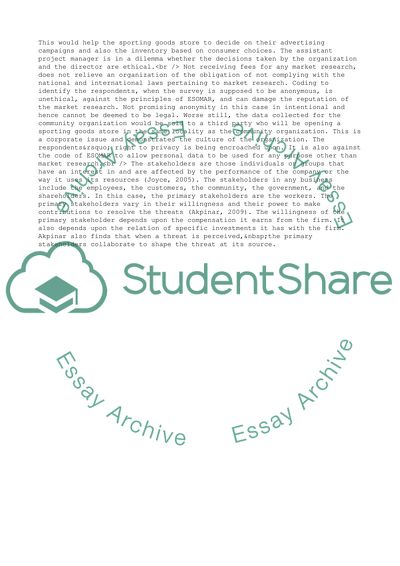Cite this document
(The Role of Ethics in Business Coursework Example | Topics and Well Written Essays - 2000 words, n.d.)
The Role of Ethics in Business Coursework Example | Topics and Well Written Essays - 2000 words. Retrieved from https://studentshare.org/business/1729549-ethics-in-business
The Role of Ethics in Business Coursework Example | Topics and Well Written Essays - 2000 words. Retrieved from https://studentshare.org/business/1729549-ethics-in-business
(The Role of Ethics in Business Coursework Example | Topics and Well Written Essays - 2000 Words)
The Role of Ethics in Business Coursework Example | Topics and Well Written Essays - 2000 Words. https://studentshare.org/business/1729549-ethics-in-business.
The Role of Ethics in Business Coursework Example | Topics and Well Written Essays - 2000 Words. https://studentshare.org/business/1729549-ethics-in-business.
“The Role of Ethics in Business Coursework Example | Topics and Well Written Essays - 2000 Words”, n.d. https://studentshare.org/business/1729549-ethics-in-business.


